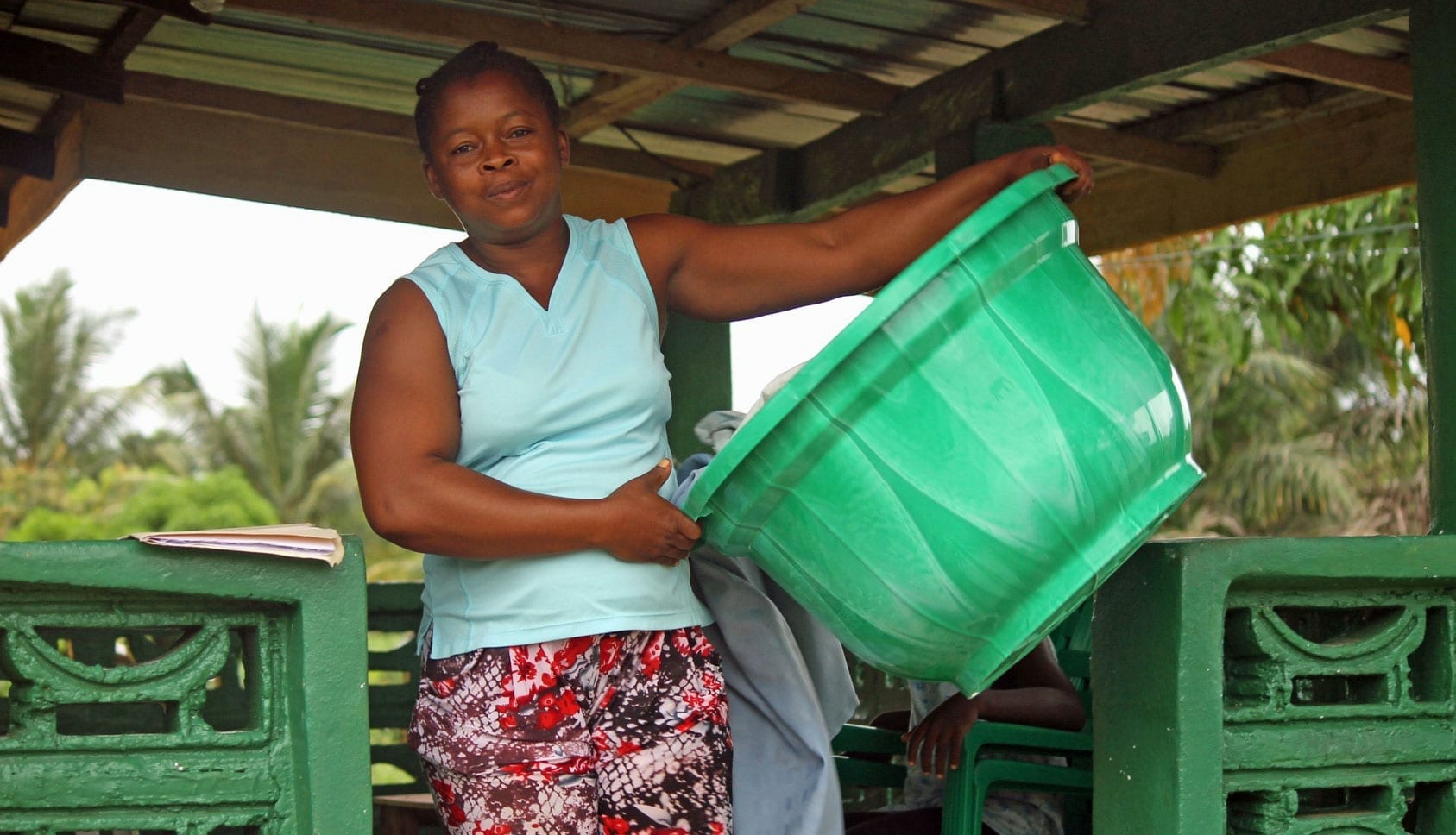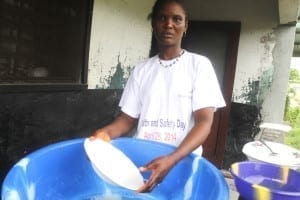Liberian domestic workers and other informal-economy workers in Liberia are set to receive significant wage gains, collective bargaining rights and labor law protection under the Decent Work Bill signed today by President Ellen Johnson Sirleaf. The bill takes effect when printed into handbills for distribution.
Unskilled workers will earn a minimum of $3.50 per day, an amount that is more than five times the $15 per month salary of the lowest-paid domestic workers in Liberia, says Marthaline Cole, coordinator of the Domestic Workers Union of Liberia (DOWUL).
David Sackoh, general secretary of the United Workers’ Union of Liberia (UWUL) and the Liberia Labor Congress, was among those taking part in today’s bill-signing event.
“It’s time for us to join hands together to build and strengthen domestic workers and their union in Liberia,” Sackoh said.
Union leaders waged a years-long campaign for passage of the bill, which was delayed by more than five years over contested wage provisions. The Senate passed a final version last month.
If properly implemented, the new law will help domestic workers recover from the economic impact of the Ebola crisis, including temporary wage loss and permanent job loss.
Many employers laid off domestic workers during the Ebola crisis. Some domestic workers left their jobs to care for sick family members or to recover from illness and were not allowed to return because of social stigma around Ebola.
Until passage of the Decent Work Bill, domestic workers, like other informal-economy workers who were temporarily or permanently laid off during the Ebola crisis, had no legal protections. And only formal-economy workers were covered by the country’s labor law and could form unions and bargain collectively.
Implementation of the minimum wage may be difficult to achieve, says Cole, but the force of law is key.
“Once something is done legally I think people will pay … Definitely you have to abide by it or they can take you to court,” she says.
Inclusion of informal workers under Liberia’s labor law will help workers build collective power, says Cole. DOWUL is trying to rebuild its membership, which was slashed in half by the Ebola crisis, and the new law will enable to union to register with the government for the first time. DOWUL was organized under the leadership of the UWUL, one of Liberia’s two labor federations, and so operated without legal recognition or protection.


